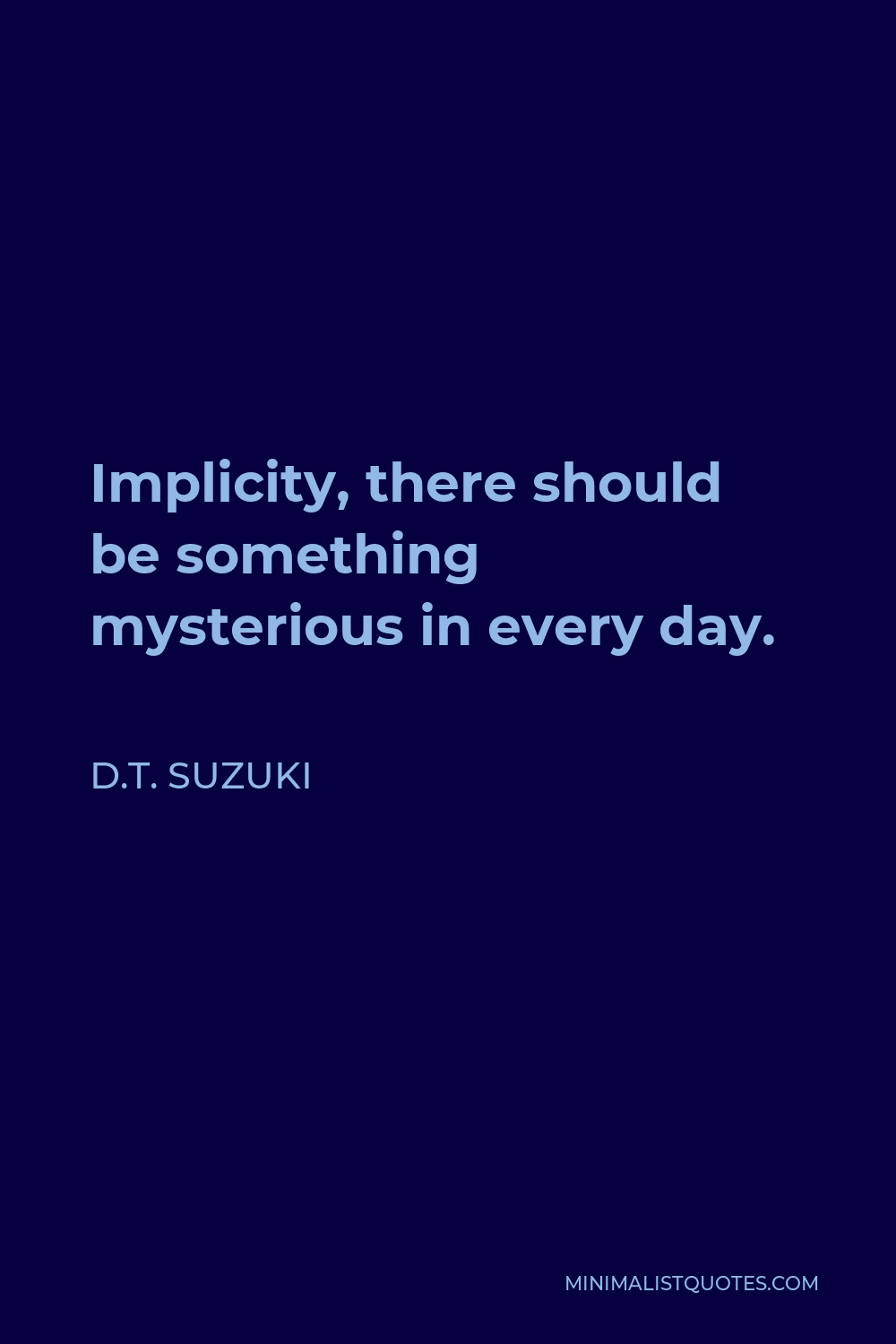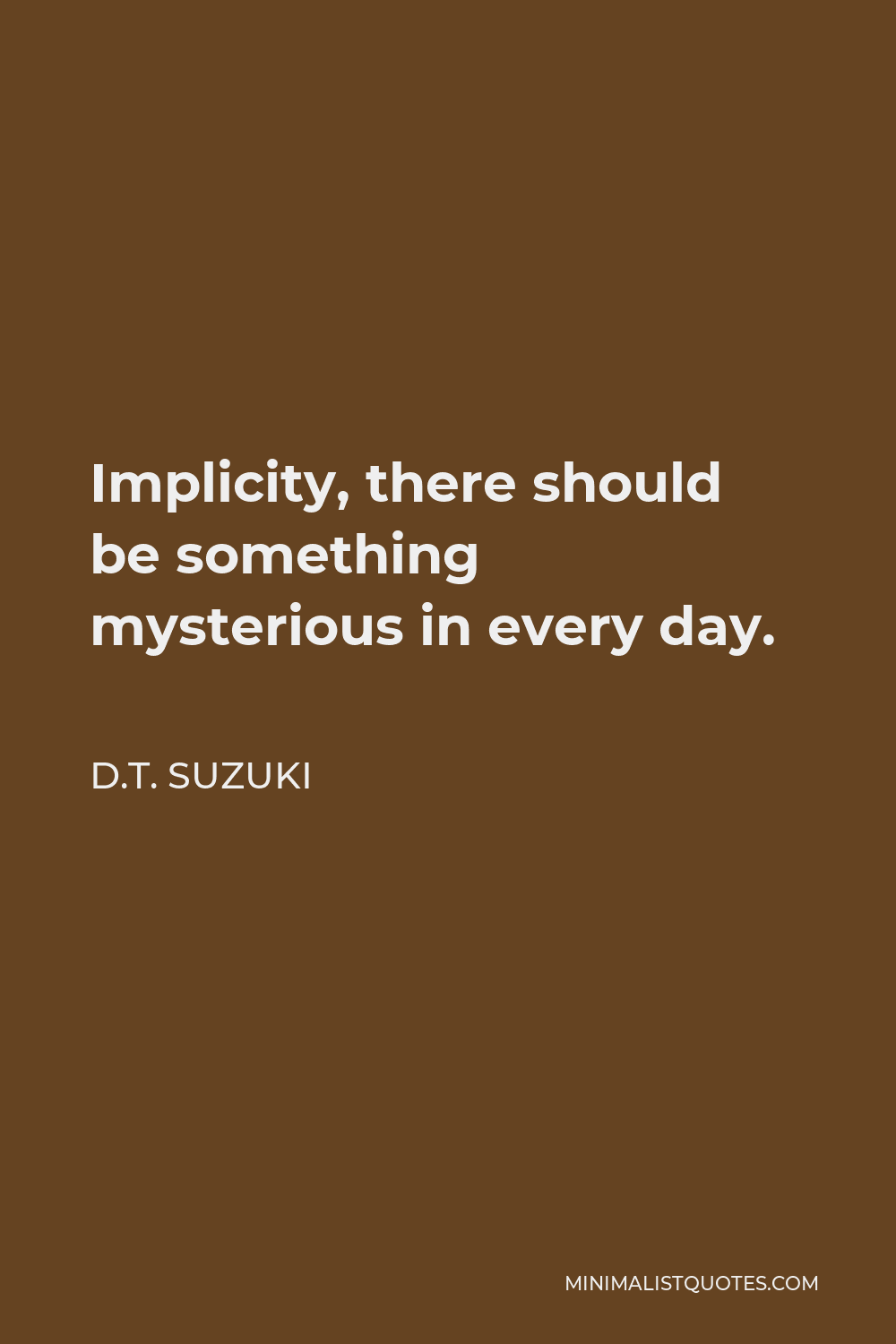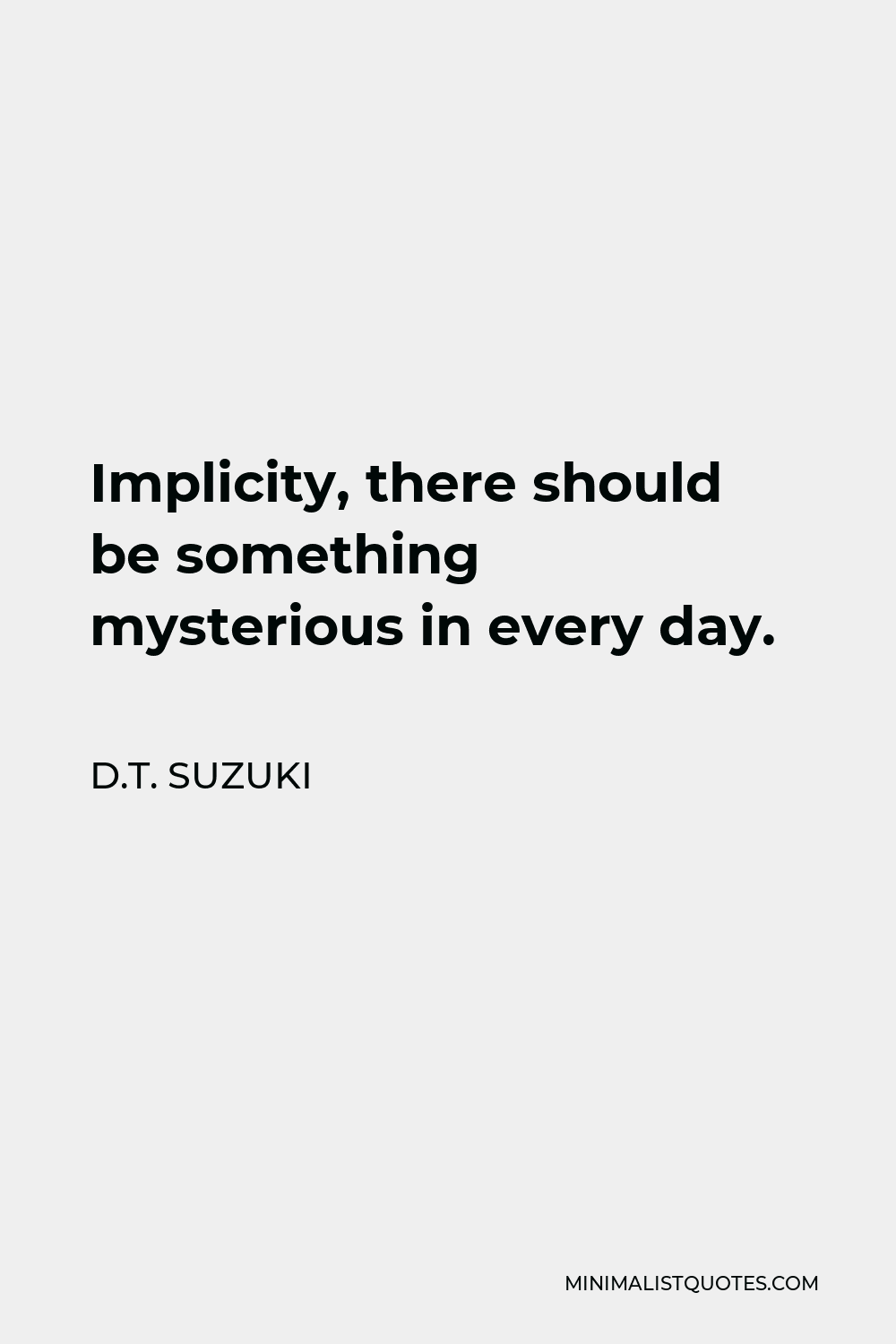That’s why I love philosophy: no one wins.
D.T. SUZUKIImplicity, there should be something mysterious in every day.
More D.T. Suzuki Quotes
-






-





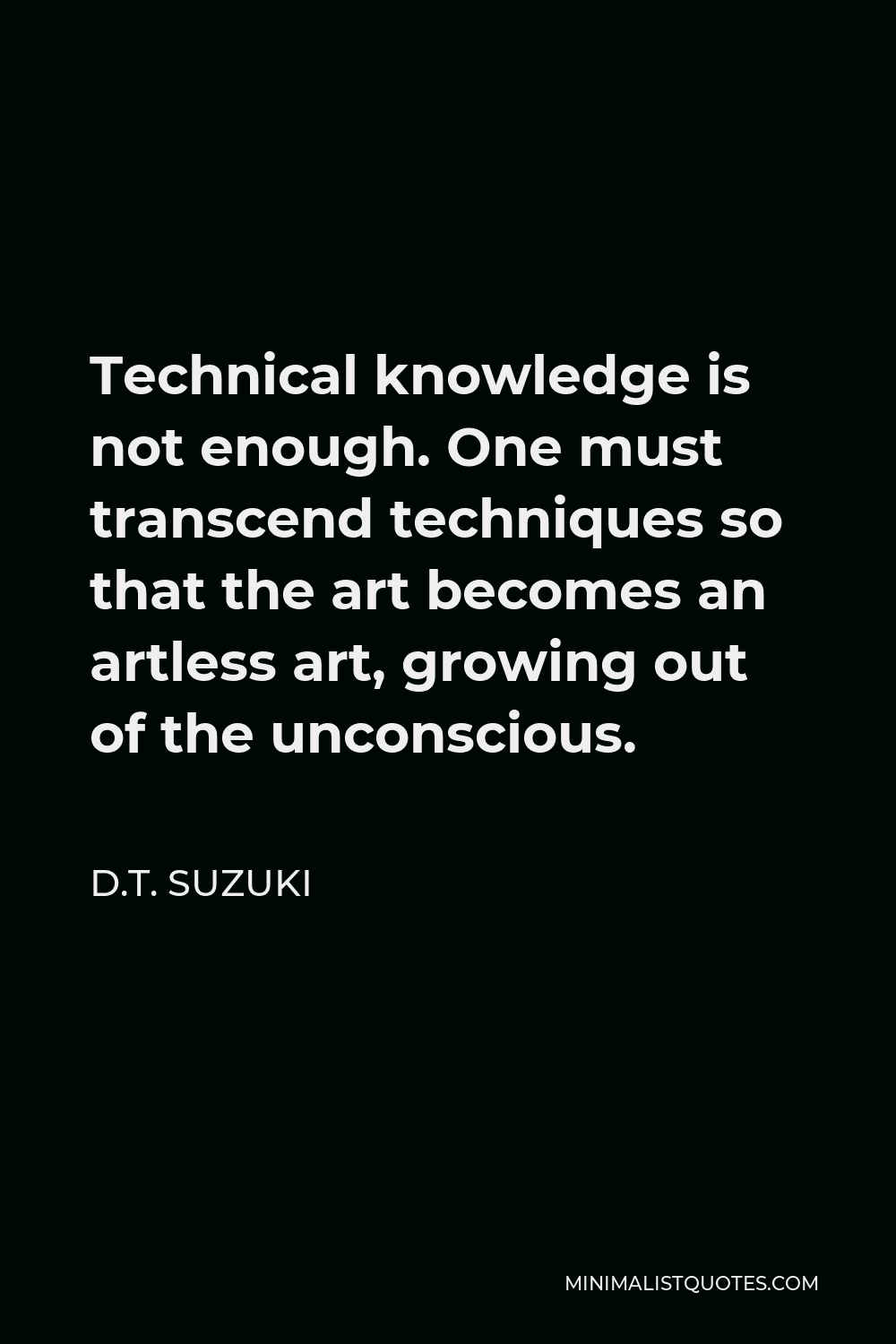
Technical knowledge is not enough. One must transcend techniques so that the art becomes an artless art, growing out of the unconscious.
D.T. SUZUKI -





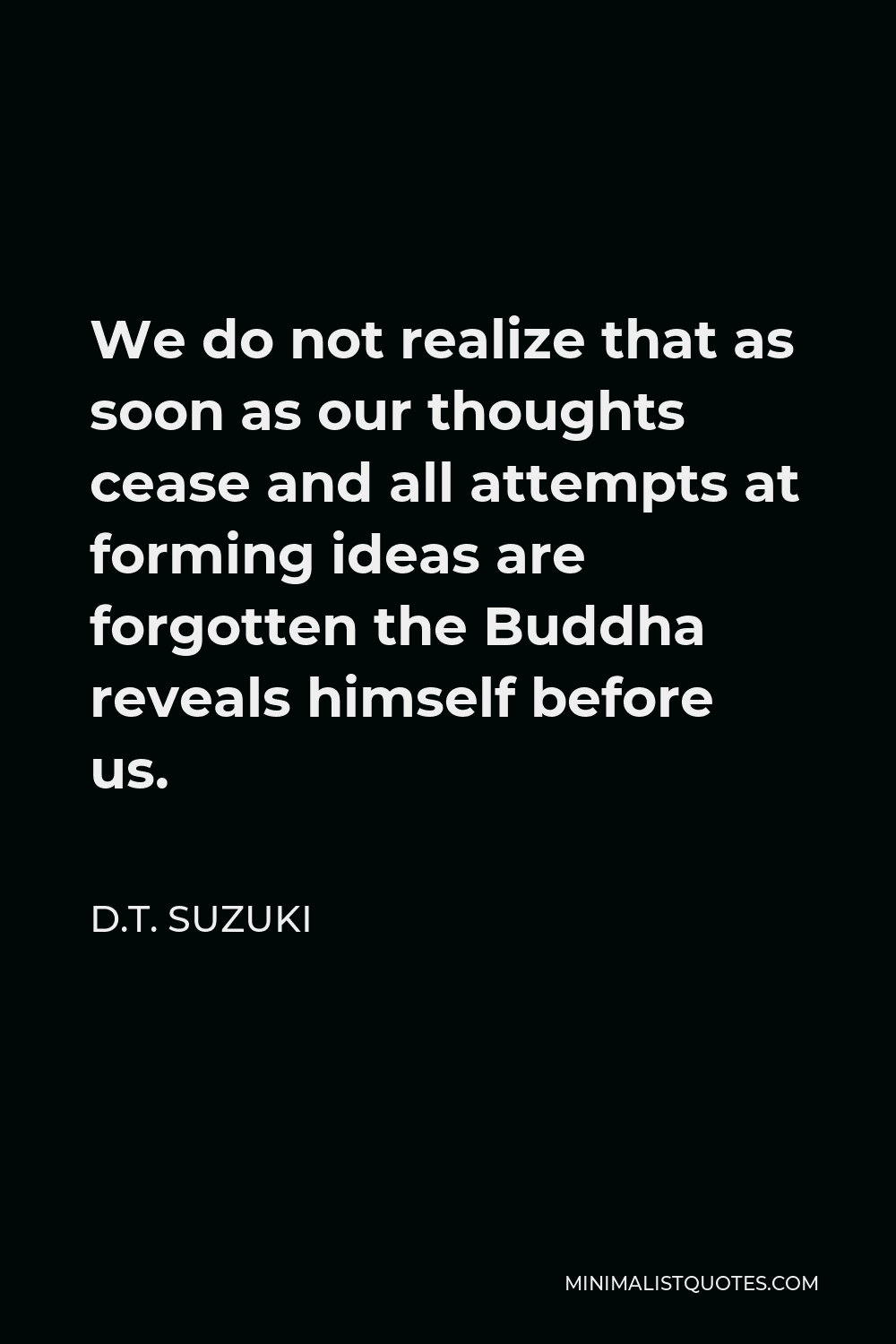
We do not realize that as soon as our thoughts cease and all attempts at forming ideas are forgotten the Buddha reveals himself before us.
D.T. SUZUKI -





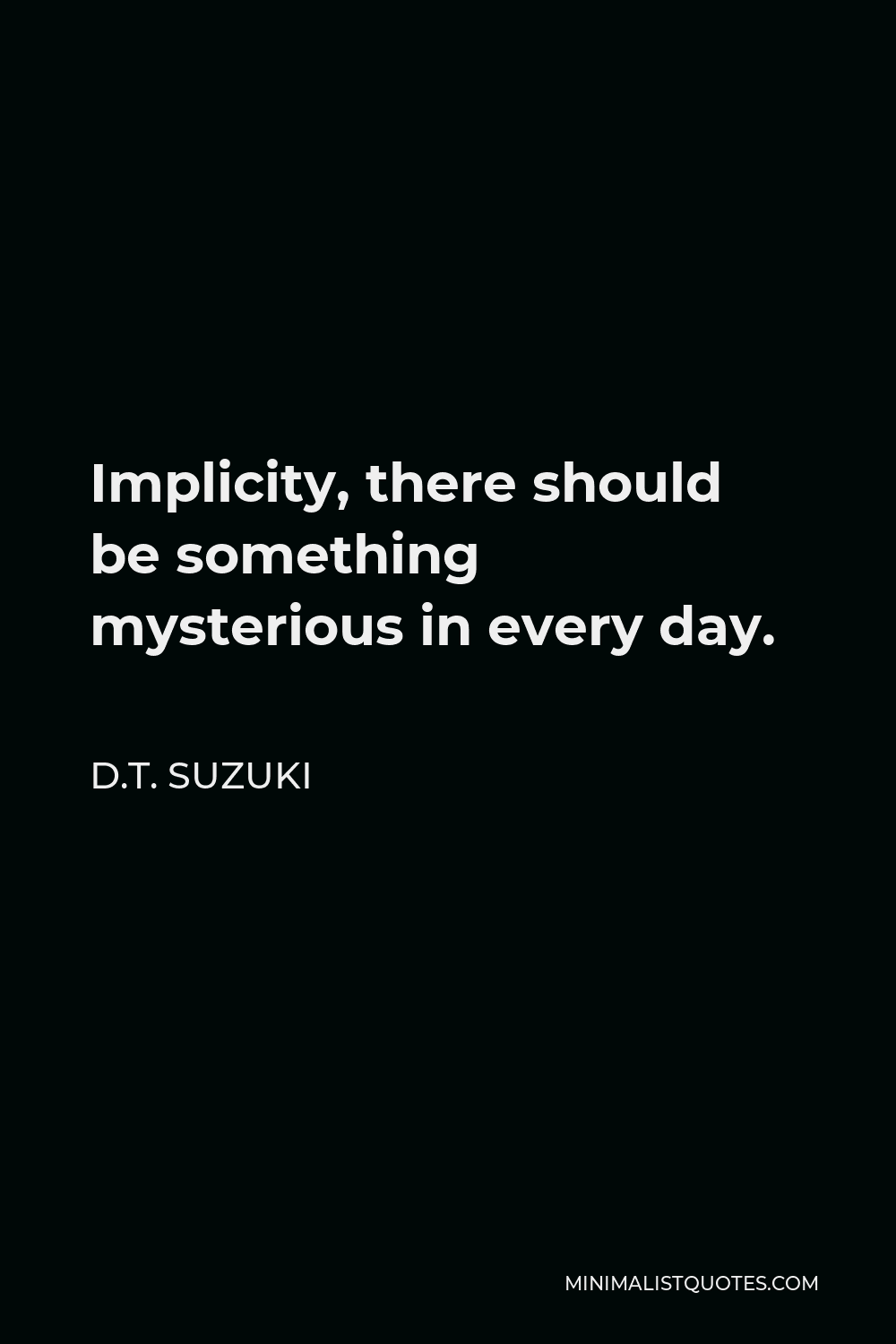
Implicity, there should be something mysterious in every day.
D.T. SUZUKI -






The contradiction so puzzling to the ordinary way of thinking comes from the fact that we have to use language to communicate our inner experience, which in its very nature transcends linguistics.
D.T. SUZUKI -






If you have attained something, this is the surest proof that you have gone astray. Therefore, not to have is to have, silence is thunder, ignorance is enlightenment.
D.T. SUZUKI -





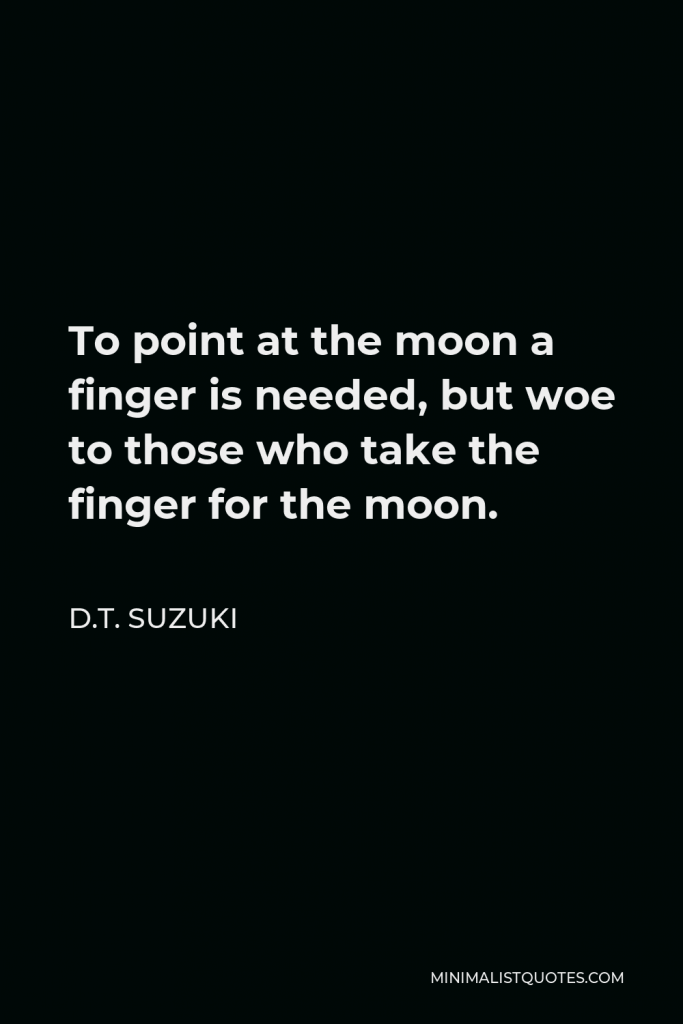

To point at the moon a finger is needed, but woe to those who take the finger for the moon.
D.T. SUZUKI -






Eternity is the Absolute present.
D.T. SUZUKI -





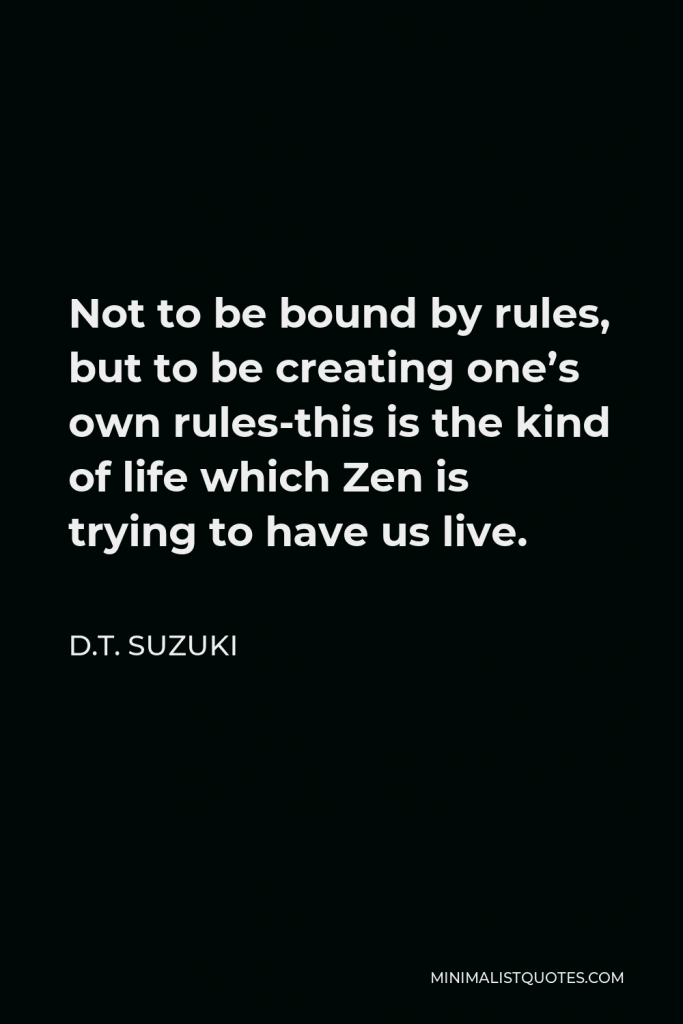

Not to be bound by rules, but to be creating one’s own rules-this is the kind of life which Zen is trying to have us live.
D.T. SUZUKI -





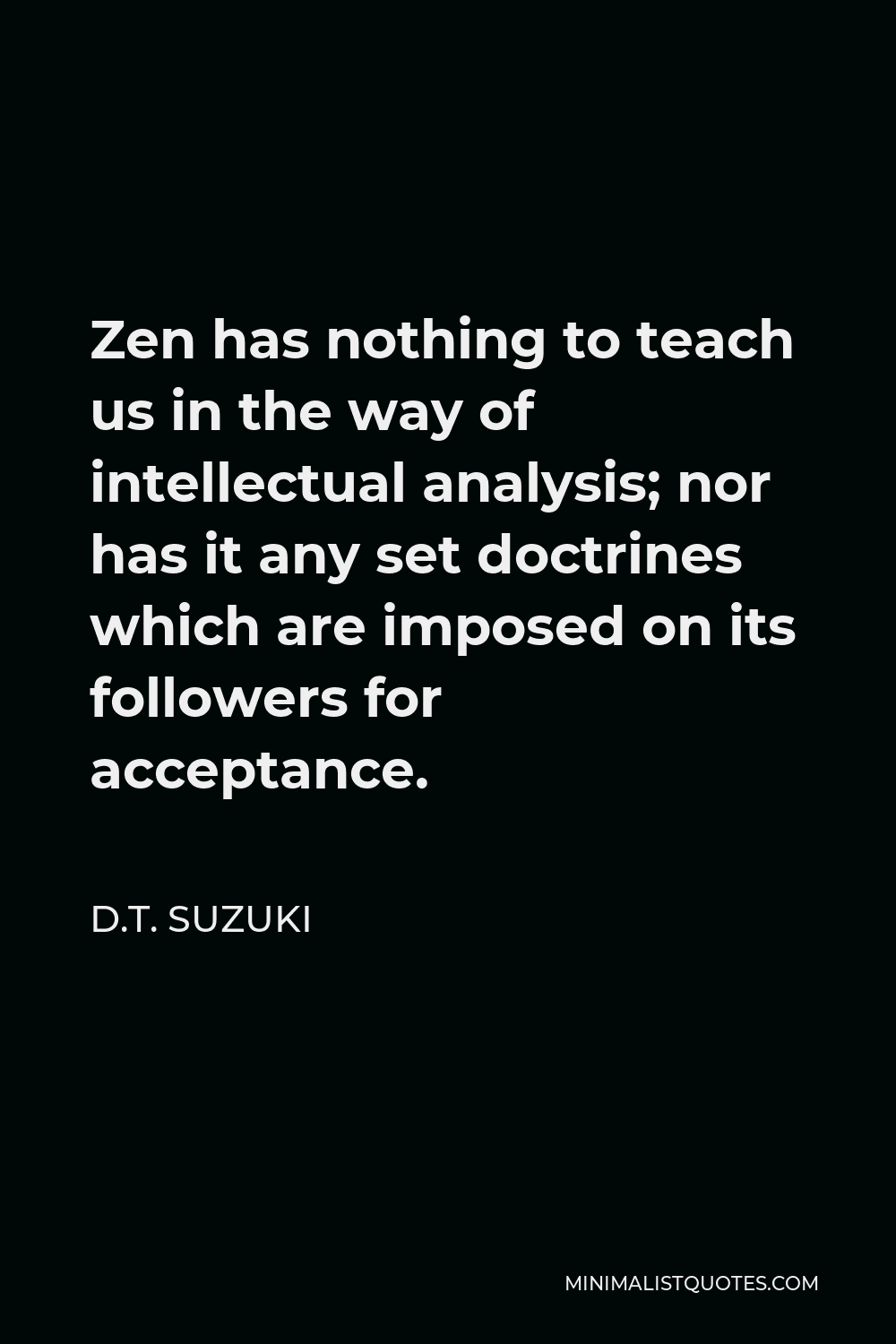
Zen has nothing to teach us in the way of intellectual analysis; nor has it any set doctrines which are imposed on its followers for acceptance.
D.T. SUZUKI -





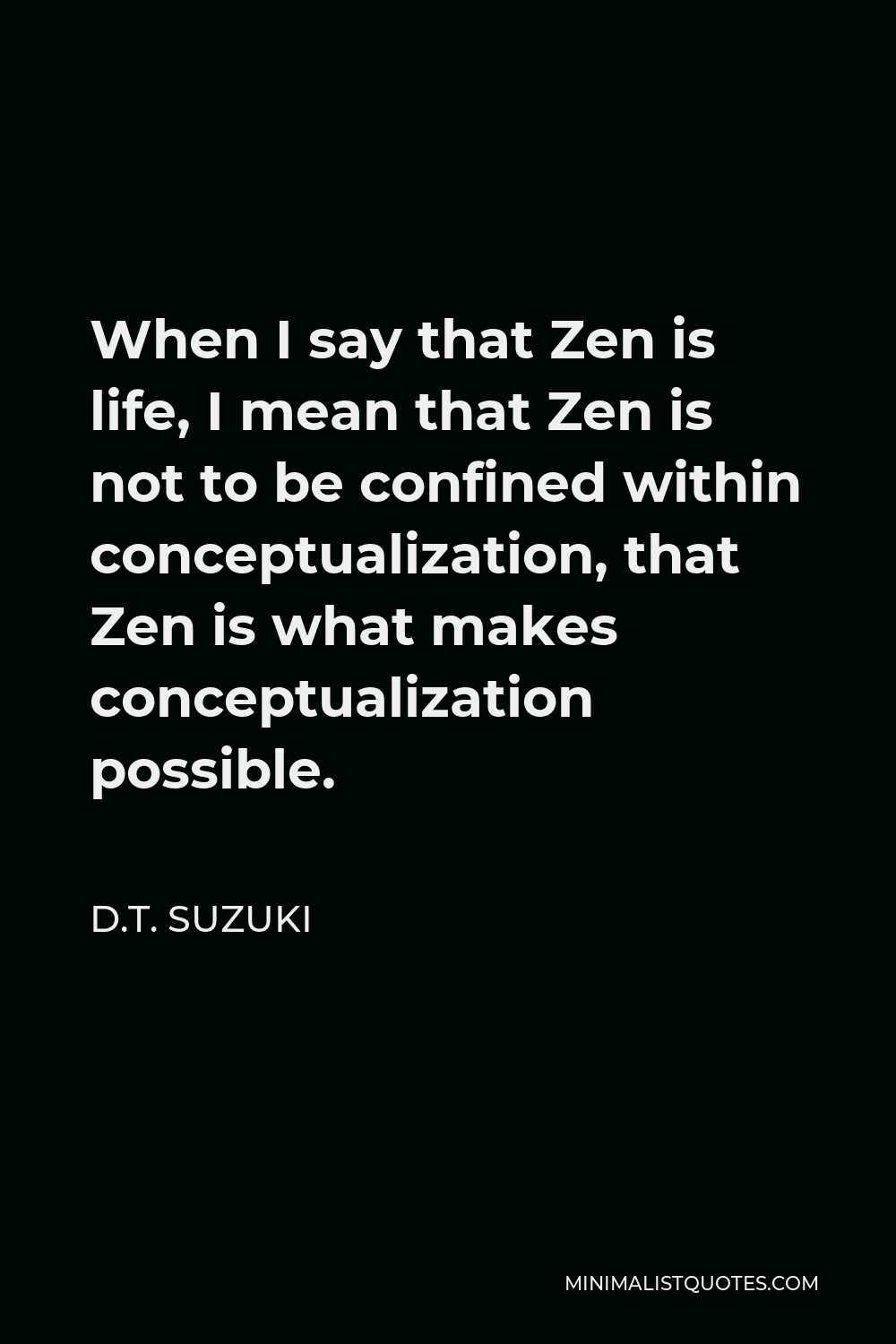
When I say that Zen is life, I mean that Zen is not to be confined within conceptualization, that Zen is what makes conceptualization possible.
D.T. SUZUKI -






Zen approaches it from the practical side of life-that is, to work out Enlightenment in life itself.
D.T. SUZUKI -





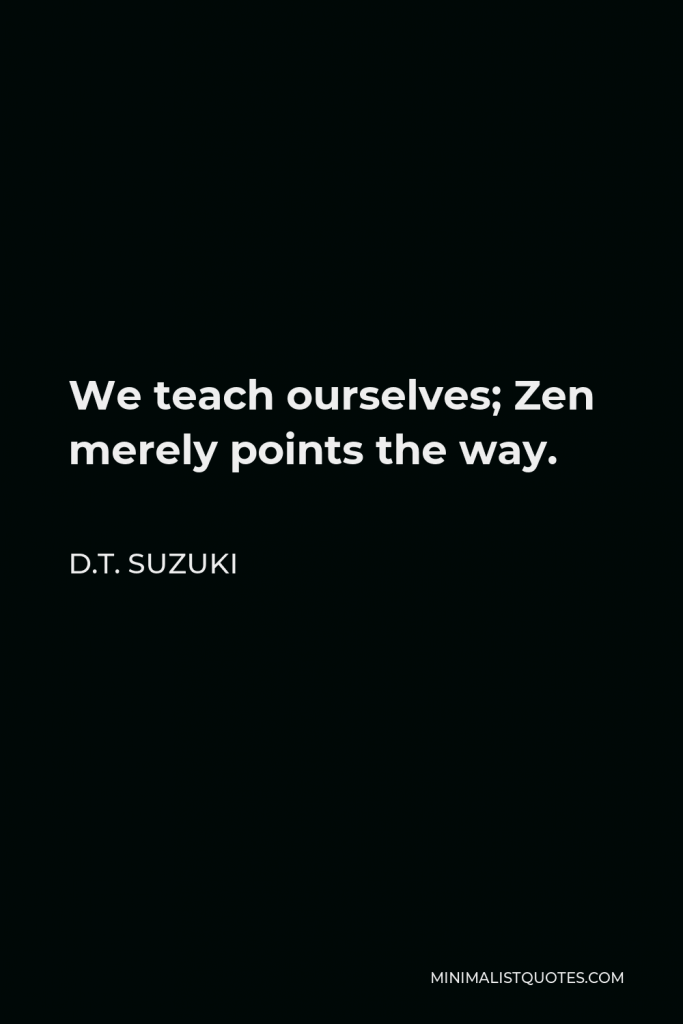

We teach ourselves; Zen merely points the way.
D.T. SUZUKI -





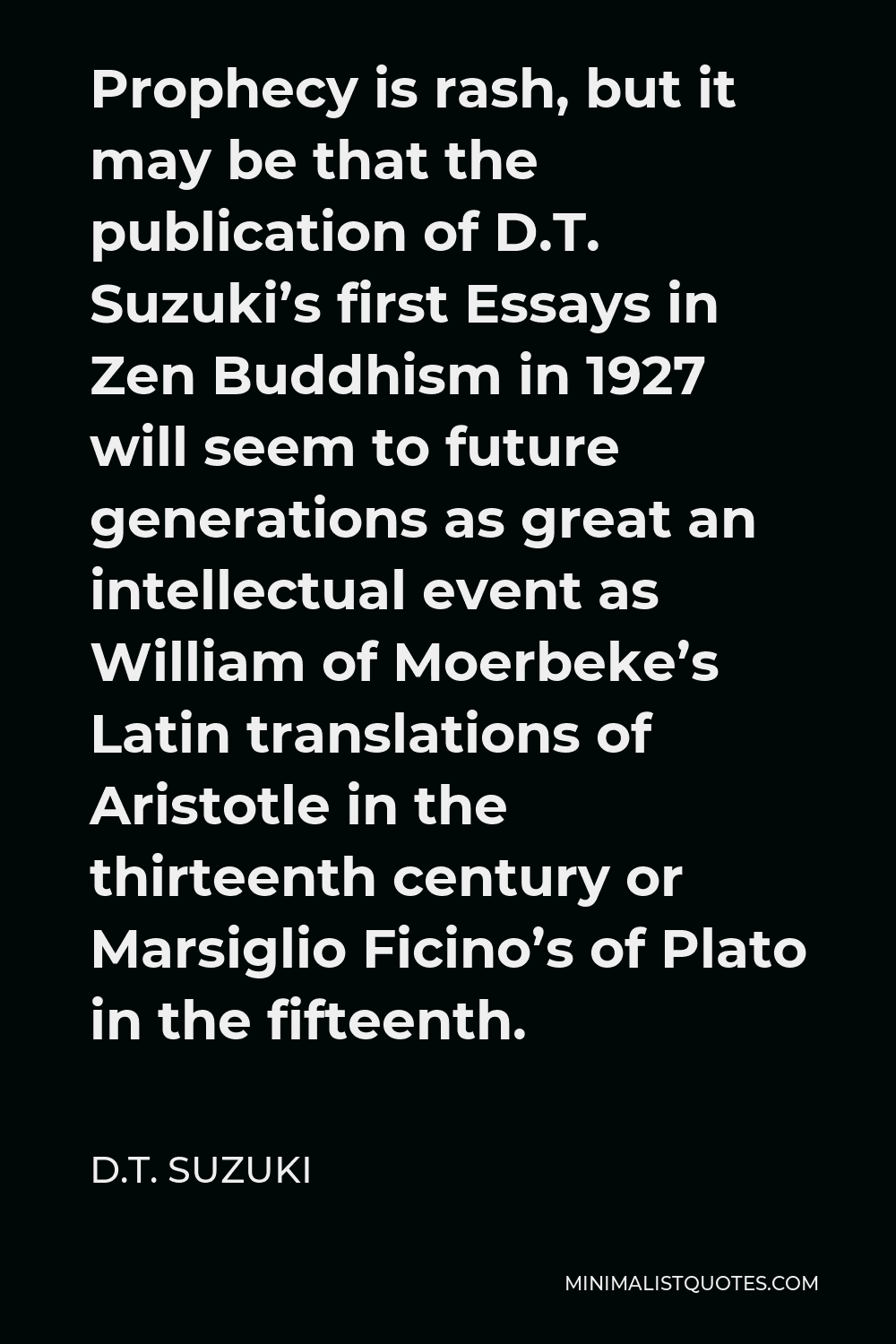
Prophecy is rash, but it may be that the publication of D.T. Suzuki’s first Essays in Zen Buddhism in 1927 will seem to future generations as great an intellectual event as William of Moerbeke’s Latin translations of Aristotle in the thirteenth century or Marsiglio Ficino’s of Plato in the fifteenth.
D.T. SUZUKI -





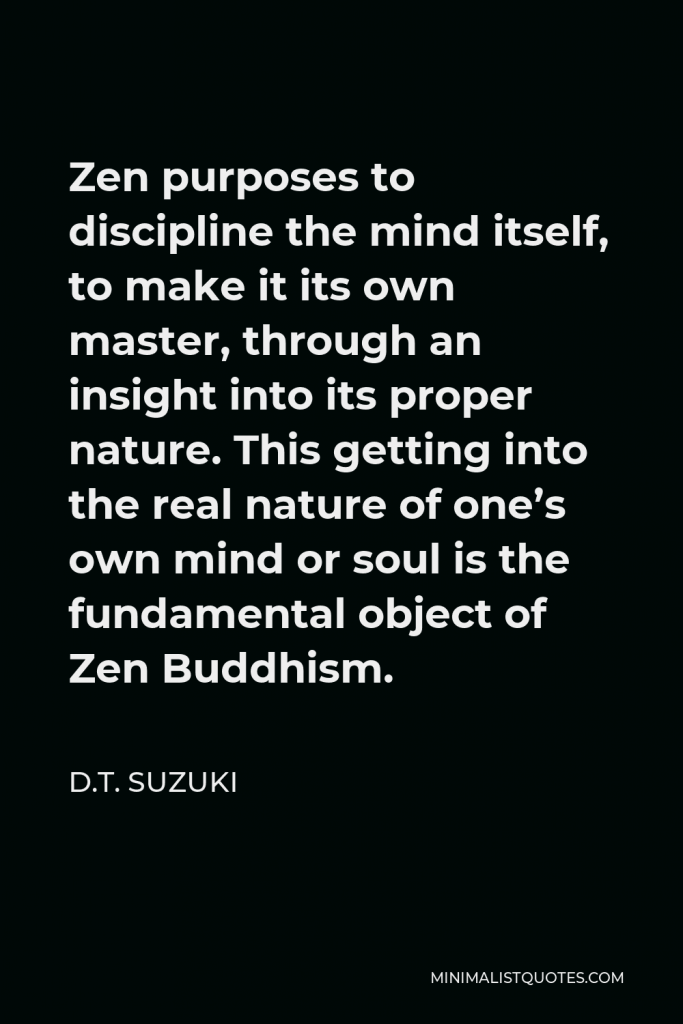

Zen purposes to discipline the mind itself, to make it its own master, through an insight into its proper nature. This getting into the real nature of one’s own mind or soul is the fundamental object of Zen Buddhism.
D.T. SUZUKI -






Dhyana is retaining one’s tranquil state of mind in any circumstance, unfavorable as well as favorable, and not being disturbed or frustrated even when adverse conditions present themselves one after another.
D.T. SUZUKI

